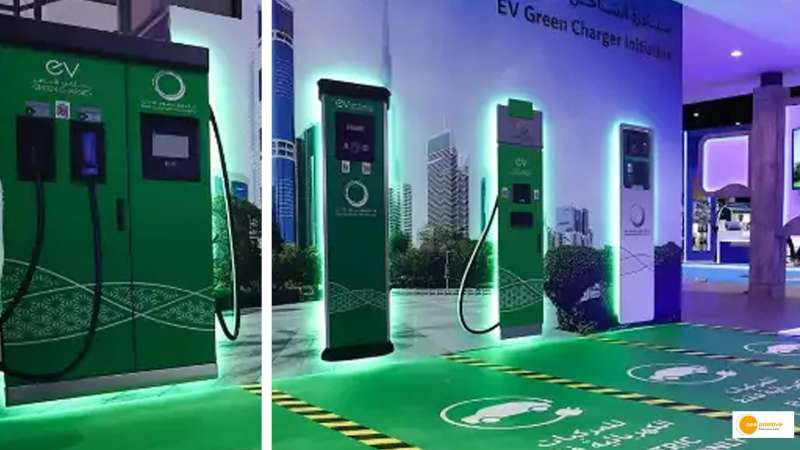

Dubai is set to host the 2023 UN Climate Change Conference (COP28), bringing together global policymakers to address climate change. With transportation being a key contributor to CO2 emissions, both Dubai and India are focusing on sustainable mobility solutions. Electric vehicles (EVs) play a crucial role in reducing emissions, and the EV market is gaining traction in both countries. Dubai’s commitment to EV adoption and charging infrastructure development aligns with India’s ambitious goal of achieving 100% EV adoption by 2030. The collaboration between Dubai and India paves the way for a greener future.
Transportation Sector and Climate Change Concerns
The transportation sector currently accounts for 23% of global CO2 emissions. To combat climate change, reducing transport-induced CO2 emissions by at least 50% by 2050 is a widely shared goal. Electric modes of mobility and public-private interventions are instrumental in achieving significant CO2 reductions. EVs offer a fuel-efficient alternative, substantially cutting emissions and contributing to sustainable transportation.
EV Market in the UAE
The global EV market is expected to reach a value of $300-500 billion within the next decade, with a projected annual growth rate of 30% in the UAE between 2022 and 2028. The UAE ranks among the top 10 countries globally prepared for EV adoption. Approximately 52% of UAE residents express a desire to switch to hybrid or EVs due to rising fuel prices. Al-Futtaim, a progressive regional family business, aims to democratize the local EV market by offering affordable and premium electric vehicles, including the BYD ATTO3 C-SUV. The UAE government’s Net Zero 2050 Strategic Initiative emphasizes the importance of EVs in reducing carbon emissions.
Government Initiatives in Dubai
Dubai Electricity and Water Authority (DEWA) launched the EV Green Charger Initiative to make EVs accessible to the public. The UAE currently boasts 325 charging stations, and partnerships aim to deploy 10,000 EV charging stations throughout the country by 2030. The Ministry of Energy and Infrastructure in the UAE is conducting research on legislation to enhance EV charging infrastructure, reduce charging time, increase efficiency, and maintain reasonable pricing. The Road Transport Authority (RTA) is implementing incentives such as free parking, toll exemptions, and reduced registration fees. Dubai aims to make all taxis electric, hybrid, or hydrogen-powered by 2027.
India’s EV Market
India witnessed over 1 million EV sales in 2021, marking a remarkable 206% increase compared to the previous year. The government has set a target for 100% EV adoption by 2030. The Indian EV market presents a significant opportunity, with a projected value of $206 billion by 2030. Investment in the Indian EV industry reached $6 billion in 2021, attracting private equity and venture capital investors. Al-Futtaim Automotive, through its investment in River, a Bengaluru-based electric startup, showcases Dubai’s presence in the Indian EV sector. The focus on two-wheeler EVs is prominent in India, with ResearchAndMarkets.com projecting substantial growth in this segment.
Collaboration and Investment Opportunities
Dubai’s favourable business environment provides opportunities for Indian EV companies to expand their operations. Simultaneously, India’s massive EV market offers an attractive prospect for Dubai investors seeking to capitalize on India’s EV growth. Bilateral cooperation and investment can stimulate technological exchange and accelerate the global transition to sustainable transportation. The collaboration between Dubai and India exemplifies international efforts towards sustainable mobility.
Conclusion
Dubai and India are taking significant steps towards sustainable mobility, aligning with global climate change objectives. Both countries recognize the importance of EV adoption and the establishment of charging infrastructure. The collaboration between Dubai and India presents opportunities for bilateral cooperation and investment, fostering a greener future. As the world works together to combat climate change, the collective efforts of Dubai and India contribute to a more sustainable and environmentally friendly transportation sector.


